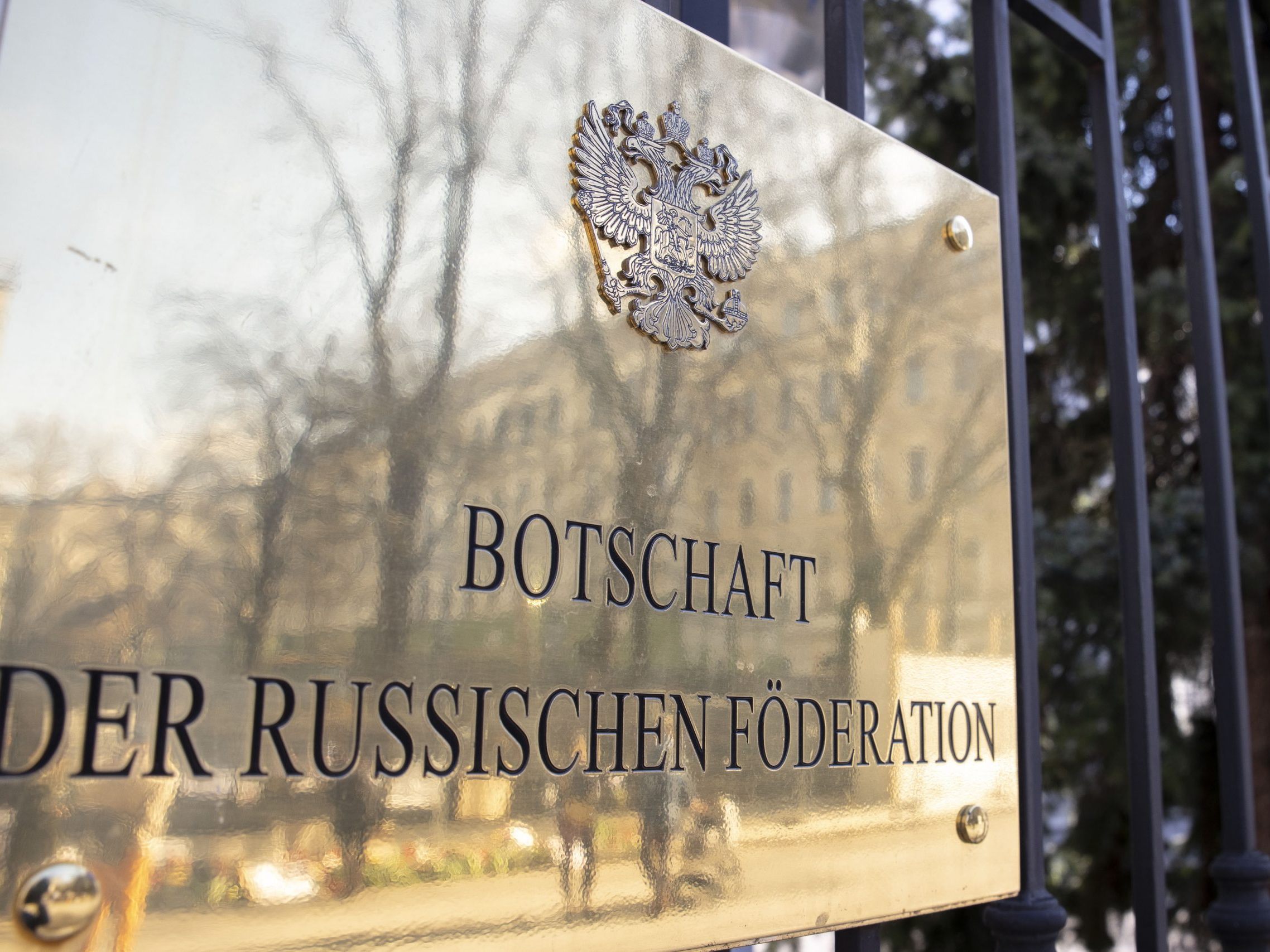Details on Russian Espionage in Austria Revealed

With the British court case involving Bulgarians acting on behalf of ex-banker Jan Marsalek, who surveilled investigative journalist Christo Grozev in Vienna, details of a larger Russian intelligence operation have become known. There are only sporadic details about other activities of Russian services in Austria: Signal intelligence is visible in the "Russencity," and it is suspected that "diplomats" accredited in Vienna travel to neighboring countries.
Russian Intelligence Officers Linked to Poisoning Attack on Navalny
On December 14, 2020, the online media "Bellingcat" and "The Insider" published an investigation naming specific employees of Russia's domestic intelligence service FSB in connection with a poisoning attack on the leading Russian opposition figure Alexei Navalny. On the same day, the FSB's internal security department was tasked with determining how these names became known to journalists, wrote the authors of the original investigation, Christo Grozev and Roman Dobrochotow, in early March 2025 in "The Insider." "A high-ranking intelligence source claims that this order came personally from (Russia's President, ed.) Vladimir Putin," according to the two.
Marsalek Ordered "Investigations" Against Investigative Journalists - Egisto Ott Also Involved
It can be proven from investigation files that on the evening of December 14, the former Wirecard banker Marsalek contacted his acquaintance Orlin R., who lives in Great Britain, and tasked him with "investigations" against the Bulgarian investigative journalist Grozev. On December 15, 2020, the suspended BVT employee Martin Weiss also suggested to his colleague Egisto Ott a review of Grozev, who has been living in Vienna for a long time. Among other things, the fact that R., on behalf of Marsalek, had a laptop picked up from an Ott son-in-law in Vienna in 2022 led to Ott's arrest last year. However, the Vienna Higher Regional Court subsequently saw no grounds for detention and ended the pre-trial detention.
For the investigative journalist Grozev, who himself is from Bulgaria, the Austrian activities of the Bulgarians hired by Marsalek, as well as possibly additional actors, were ultimately classified as extremely threatening. In the event that a kidnapping failed, even murder was considered. In early 2023, during a stay in New York, he received a call from U.S. law enforcement agencies, Grozev recounted last week in an interview with British Channel 4. He cannot return to Europe because a "team" is waiting for him there.
Journalist Grozev Suspects Further Russian Operations in Austria
A few weeks later, the relevant authorities in Austria informed him about the hired Bulgarians who not only surveilled him but also stole an old computer during a break-in. "The seriousness with which Austrian intelligence services told me about it implied that there is a much more professional and long-running operation," the journalist speculated about further activities by Russian services in Austria directed against him, which have not yet become known.
The operation against Grozev is the only major espionage operation related to Russian services in Austria that has become known in detail since the beginning of the Russian war of aggression in 2022. The fact that freelancers without Russian citizenship and non-full-time agents were used corresponds to a current trend: After numerous EU countries expelled a large number of Russian diplomats with suspected intelligence backgrounds in recent years and also made travel from Russia to the EU more complicated, Moscow is increasingly relying on outsourcing and commissioning significantly less trained individuals. The latter can also lead to an increased security risk for uninvolved parties.
Bulgarian spies "did not do their homework": Grozev's son was in the next room during the break-in
"These people do not know how to de-escalate," explained Grozev in his interview with Channel 4. When this group broke into his Vienna apartment, his son was playing on the computer in a neighboring room. He does not want to imagine what would have happened if his son had left the room. Unlike professional spies, these burglars had not done their homework, he complained.
Eavesdropping operation in the "Russian City" in Vienna-Donaustadt
In the last published report on the protection of the constitution by the Austrian Ministry of the Interior, there is no mention of such operations, and the focus is on Russian disinformation and political influence without naming specific examples. However, it is also recalled that in 2023 four Russian "diplomats," who were leading in establishing technical infrastructure such as satellite communication, were forced to leave Austria. So-called signal intelligence, specifically the interception of international communication with the help of large satellite dishes in the so-called "Russian City" in Vienna-Donaustadt, is considered one of the important and most visible activities of Russian services in Austria.
Immense number of covert Russian intelligence agents in Austria
The fact that Russia has one of the largest so-called "legal residencies" in Austria, meaning covert intelligence agents with diplomatic immunity from prosecution, has also led to discussions with neighboring countries in recent years: After Germany and the Czech Republic noticeably reduced Russia's diplomatic presence in their countries, Russians accredited in Austria are said to be increasingly active in intelligence activities beyond Austria's borders. The Czech Republic, in particular, has been advocating for some time that Russian diplomats in the EU should only be allowed to travel to those states where they are formally accredited. However, this demand has not yet been implemented.
(APA/Red)
This article has been automatically translated, read the original article here.





